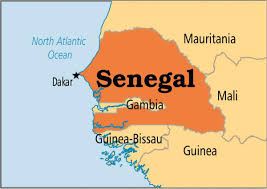APA-Dakar (Senegal) More than seven million voters living in 14 regions across Senegal and in the Diaspora look set to go to the polls to elect a new president on Sunday March 24, 2024.
Allegations of alleged “anomalies” in the electoral roll have been circulating on social media for several days, particularly concerning three departments in the Matam region (north), which are said to have the same number of voters (198,718).
The ‘Direction Generale des Elections’ (DGE) has denied this claim, dismissing it as ‘totally false.’
On its X account (formerly Twitter), the DGE stressed that the department of Ranerou Ferlo could not have the same number of polling stations as the department of Matam, given that the electorate of the region is seven times larger than that of Ranerou.
Ranerou has 27,396 voters, while Kanel has 117,723. The department of Matam has 170,743
voters, bringing the region’s total to 315,862.
In the same vein, the DGE has clarified the “drop in the voter population in the department of Pikine” (west): “In 2019, the communes of Keur Massar, Malika, Yeumbeul Nord and Yeumbeul Sud were part of the department of Pikine.
However, following the 2021 administrative redistribution, these four communes were integrated into the new
department of Keur Massar. This naturally led to a drop in the voter population in the department of Pikine from 573,844 voters in 2019 to 391,278 voters in 2024, a decrease of 182,566 voters.
The voters in question have been transferred to the department of Keur Massar,” the body in
charge of conducting electoral operations explains.
On Sunday 24 March, 7,371,894 Senegalese living in 14 regions and in the Diaspora will decide Senegal’s next president after Macky Sall gave up his bid for a third term after 12 years at the helm.
The Economic Community of West African States (ECOWAS) has dispatched a 130-member observer mission to supervise the presidential election.
On his arrival in Dakar on Monday, the former Nigerian Foreign Affairs minister, Ibrahim Gambari, who is leading
the regional mission, expressed his satisfaction over the preparations ahead of the polls, and described Senegal as a model of democracy in West Africa dating back several decades.
Since 13 March, 14 long-term observers, electoral experts of various profiles, have been deployed in Senegal to monitor developments throughout the electoral process.
In addition, 116 short-term observers will be deployed countrywide to monitor voting on March 24.
AC/fss/as/APA


